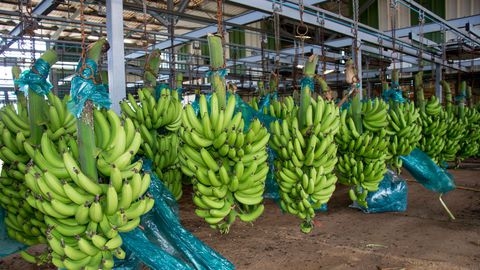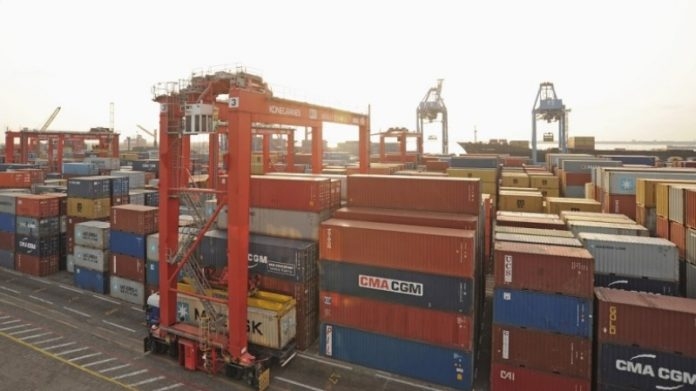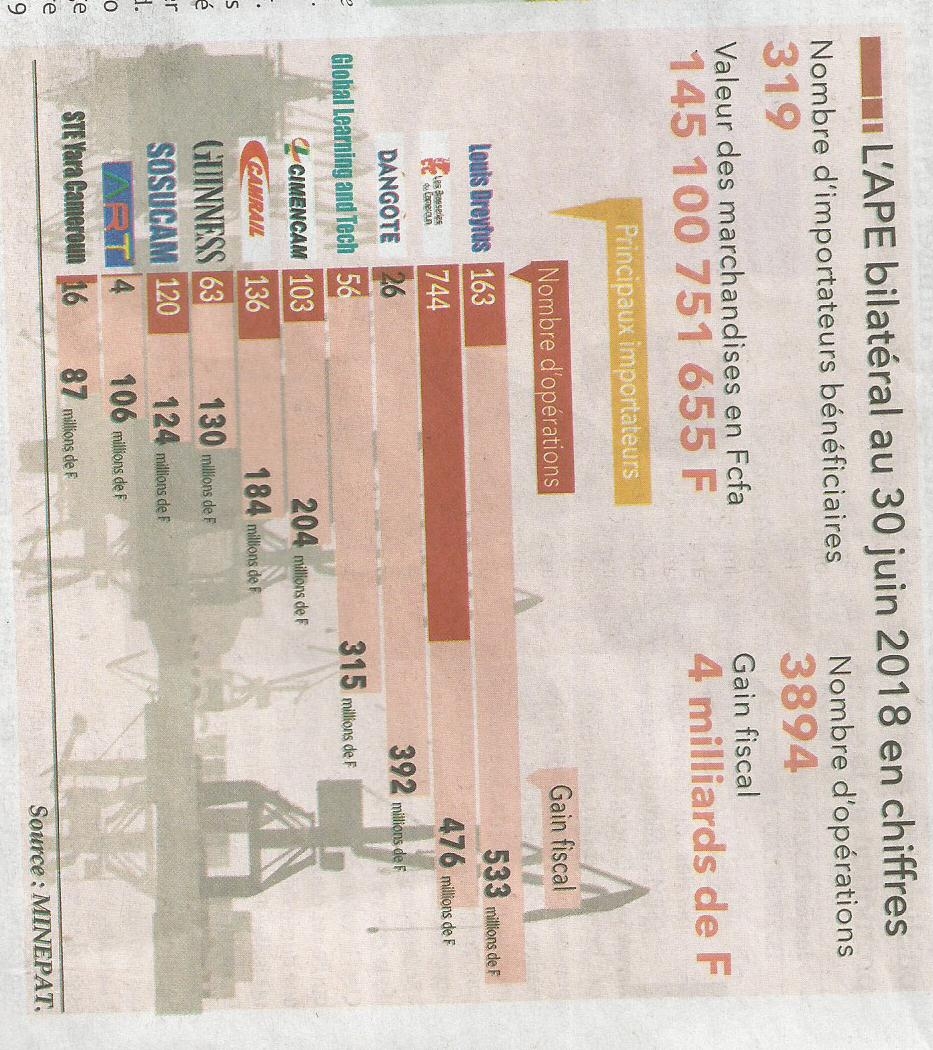The United Kingdom of Great Britain and Northern Ireland has committed to negotiating new agreements with non-EU countries bound by a trade agreement, including Economic Partnership Agreements (EPAs). This is to avoid disrupting trade with its partners when it eventually leaves the European Union within the framework of Brexit. The UK has therefore started negotiations with the Government of Cameroon in order to conclude a bilateral EPA. To this end, a workshop held on 8 May 2019 to consider and...
Read more
The Cameroon Government plans to increase domestic revenue and gradually conquer foreign markets. It also plans to boost job creation and economic growth. As a strategic partner, the European Union (EU) has committed to partnering with Cameroon and other countries in this endeavour. In 2017, it set up the European Union's External Investment Plan (EIP) for the Central Africa sub-region.
The new instrument was launched on February 22 at the PROMOTE Trade Fair in Yaounde. During...
Read more
Two years after its entry into force on 14 August 2016, the Cameroon-European Union Bilateral Economic Partnership Agreement (EPA) is yielding benefits. Some 319 importers enjoyed substantial tariff reductions by 30 June of this year. All in all, goods worth 145 billion CFAF were imported with a tax gain of 4 billion CFAF. The Cameroon-based Louis Dreyfus Company, which specialises in the sale of agricultural chemicals, topped the list of importers after carrying out some 163 transactions...
Read more
The 1st edition of the International Business and Trade Fair (FIAC) held from 24 March to 8 April 2018 in Douala, Cameroon's Economic capital city. Themed, "long live Made in Cameroon Goods," the trade fair, which was organised by the International Inter-Progress Foundation headed by Pierre Zumbach, was officially opened by the Cameroon Minister of Trade, Luc Magloire Mbarga Atangana. It brought together about 400 companies to showcase their know-how in the various sectors of the...
Read more




